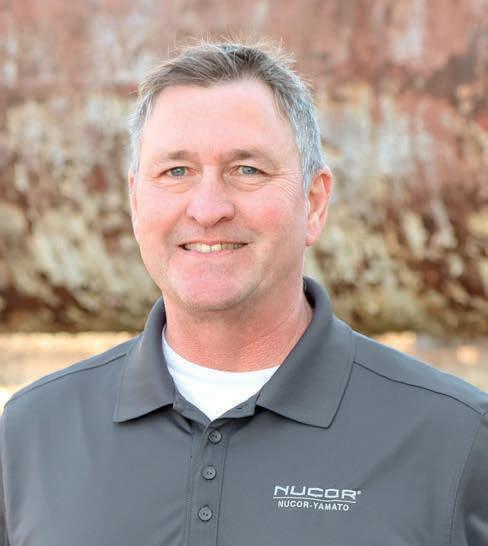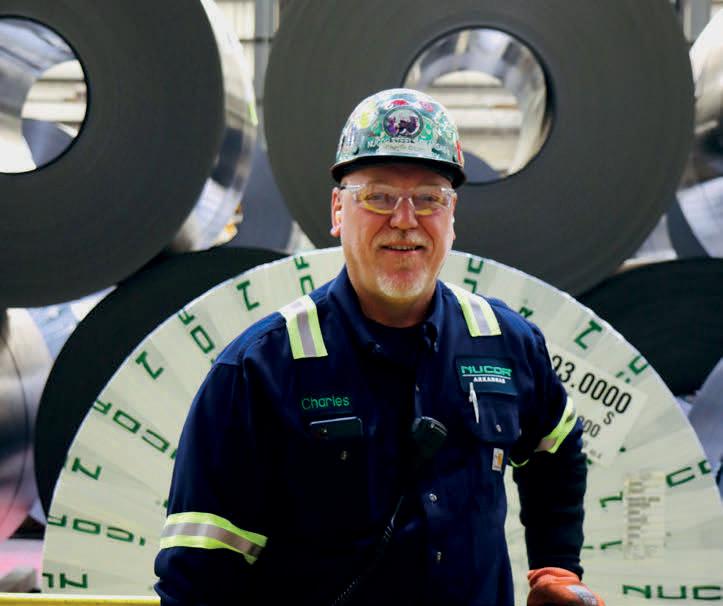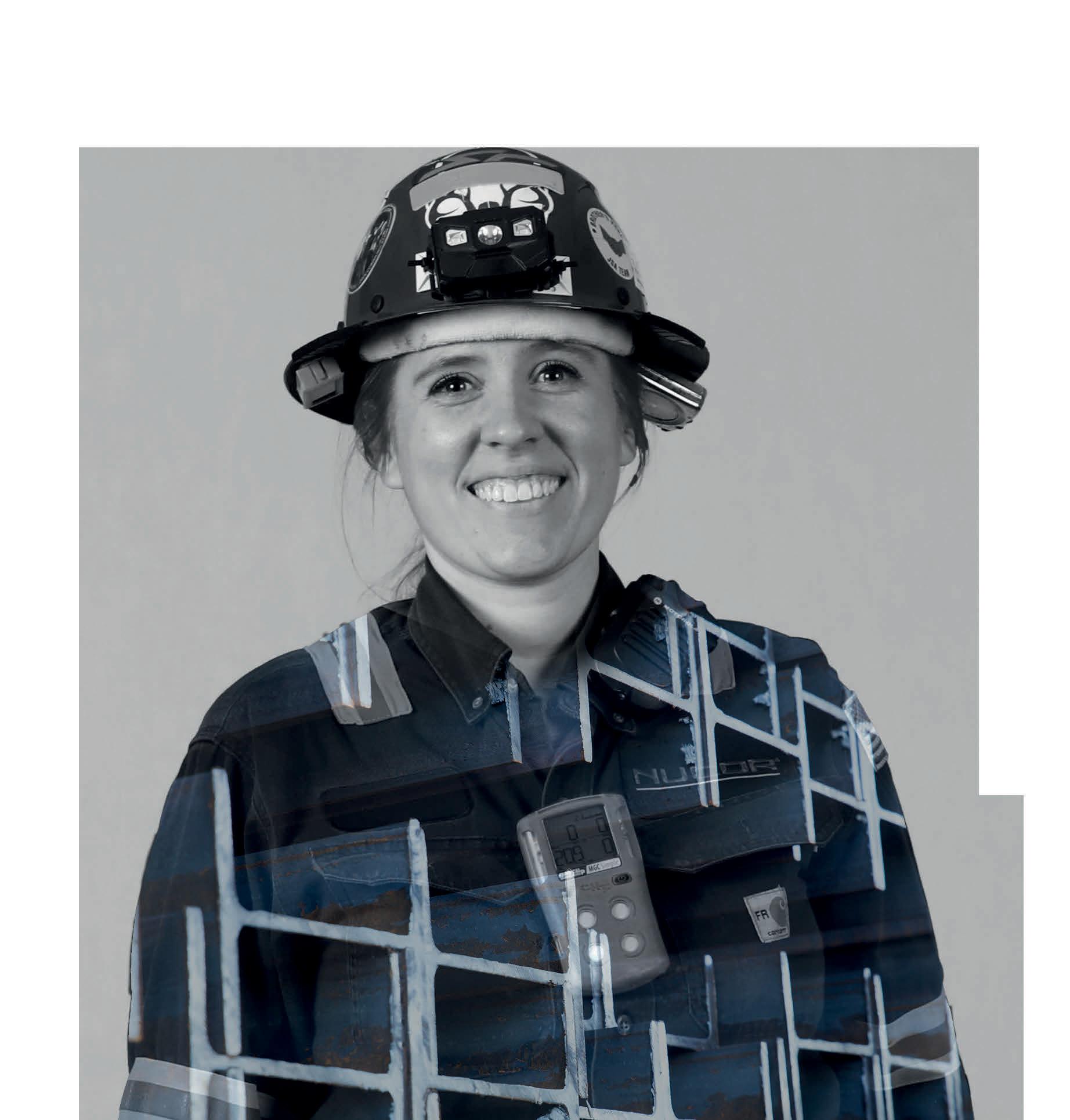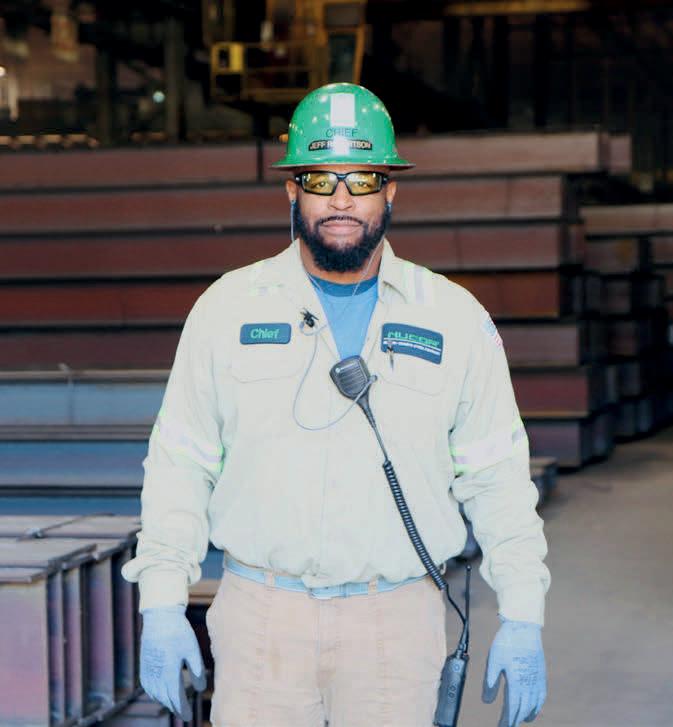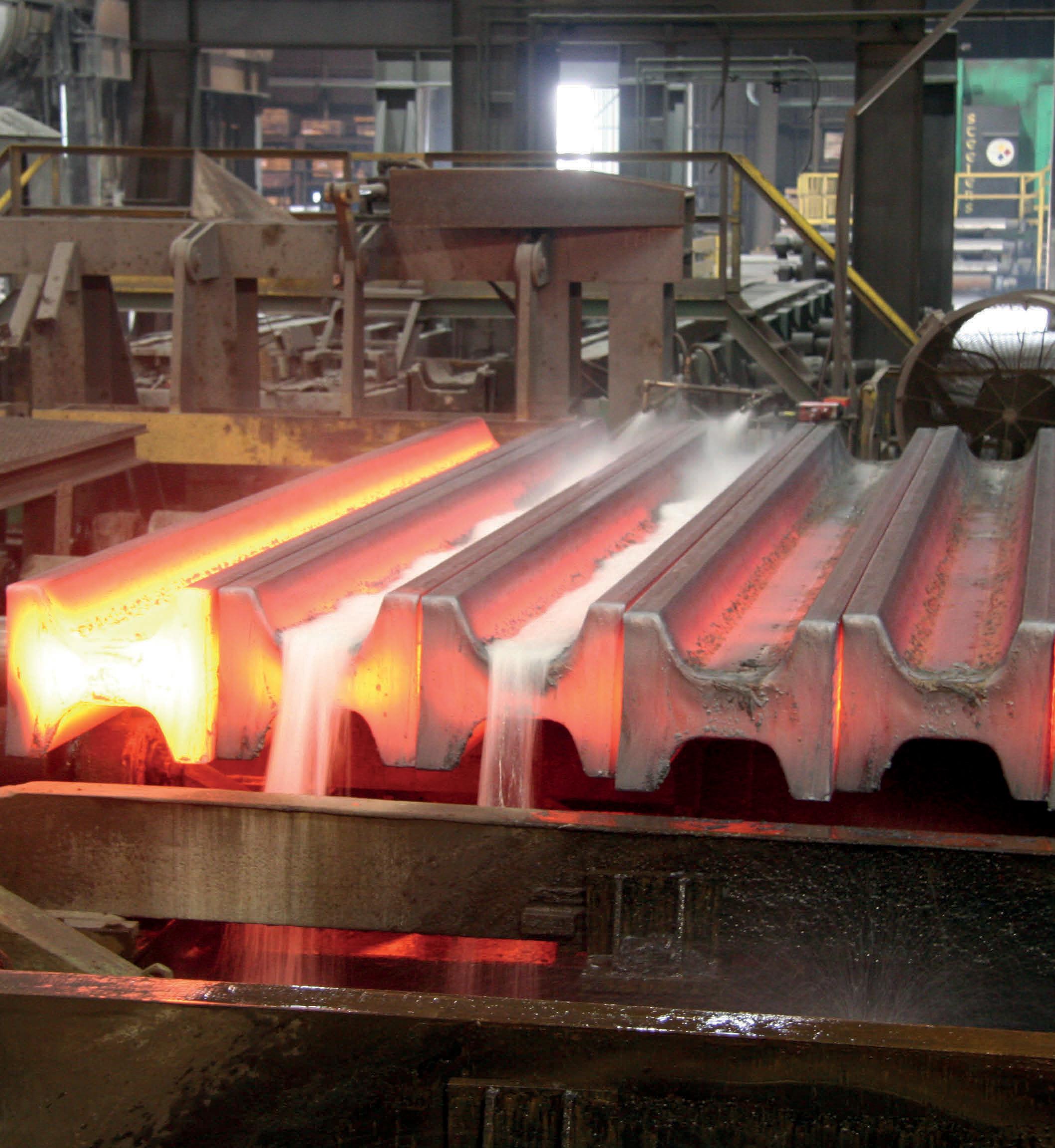
4 minute read
Companies strive to build racially and gender-diverse workforce
from BluePrint 2023
Most people who work at Little Rock Water Reclamation Authority understand the critical role their work plays in the daily quality of life in the community. But few understand it as deeply as Harold Hounwanou, engineer. For Hounwanou, the work the company does every day has special significance.
“I am originally from a small town on the West Coast of Africa, west of Nigeria,” he said. “To give you an example of what reality looked like growing up in my country, we had rolling outages, not just of power but also of water. We’d have a week on and a week off and sometimes that extended to a month, so you had to plan very well. We had to dig wells to be able to have ground water, which we boiled and stored for the times when we didn’t have running water. You opened the faucet and there’s nothing coming out. You had to plan for those days because water is life.”
Living that reality into his 20s left its mark on Hounwanou, so much so that when he came to the U.S. to attend college, he couldn’t believe the conveniences his American classmates all took for granted.
DID YOU KNOW?
Of
“Growing up, on Saturday morning I had to get up and wash clothes by hand, and to do that you needed water. You had to store the water and have it ready,” he said. “The first week I was here in the U.S. I took a bucket and went outside to wash my clothes by hand. A student stopped me and asked what I was doing, and in the broken English that I could speak at the time, I told them I’m going outside to wash my clothes. They said no, let me show you something.
“They took me to the basement and showed me all the washing machines and I started crying. I called my father and told him, ‘You would not believe the machines that they have here. They have a machine that washes your clothes and they have one that dries them, too.’”
More than a poignant story, Hounwanou’s lived experiences also illustrate the value of a diverse workforce as it brings many different perspectives to bear on the work at hand.
Much attention has been paid to diversity in the workplace over the past decade or so, efforts that are starting to pay off in many organizations. But as Lyndsey Hall, pretreatment sampling
CONTINUED ON PAGE 14
Source: U.S. Department of Labor
TERRIAN TYLER
Engineer, Little Rock Water Reclamation Authority
Hometown: Blytheville
Age: 28
Years with LRWRA: 1
BLUEPRINT: A lot of people think a skilled career is all about the technical aspect. What is the most important soft skill a person can have, in your opinion?
TERRIAN TYLER: No matter how smart you are, it doesn’t mean a thing if you can’t communicate. With what I do for example, I don’t spend all my time working with other engineers. I spend a lot of time explaining engineering concepts to non-technical people, covering different science concepts so they better understand what is going on. It’s all about having patience and it’s all about truly understanding the purpose of what you’re doing.



BP: Is a four-year degree mandatory for a fulfilling career at LRWRA?

TT: We have several project administrators who do not have a fouryear degree. We have inspectors who don’t have four-year degrees. If you didn’t want to work on my team specifically but you still want to get in the Water Reclamation, you can do it.

I think it’s important to point out, however, that while we have water treatment plant operators and several other individuals who don’t have a degree, they do have an education. If you want to work at the plant, for example, you take your wastewater operator’s test and get your license, which this is a process that may take a couple months. But you get your Class 1 and you’re working. If you go on to your Class 4, you can make a really great living.
I don’t want to say it’s easy, but it is not as hard as going to school for four years without knowing what you’re going to do at the end of it.

BP: How did you choose LRWRA to build a career?
TT: When I went to school, I focused on biological engineering, which is food, water and energy. Water stuck with me because it was one of those things everyone needs and it’s constantly a problem, either too little or too much.
The Authority does water reclamation, we reclaim the water that comes out of your house, and I wanted to work in a public utility because I feel like that’s where you can have the most impact with the general public. I worked for private companies where it was profit over everything, and so it’s nice to have a role where it’s safety first, the public first, the people first.
CONTINUED FROM PAGE 12 specialist with Little Rock Water Reclamation Authority, notes, there’s still a long way to go.

“No, there’s not a lot of females in this industry, at all,” she said. “I think one problem is that women don’t know about the opportunities here. They might think they can’t do the work because the job requirements are heavy lifting or that kind of stuff. But women can do it.
“In fact, at our utility we have a WOW program, which is Women of Waste Water. We try to meet once a month for an hour or so, all the women of the utility, and socialize and interact with each other and empower each other.”
Desi Hunter, who’s worked for Entergy for 23 years, said he’s seen the level of diversity in the trades rise and fall in that time. That tells him that the message of job opportunities and skilled careers for all must constantly be reinforced.
“Over the last two or three years what I’ve tried to do, I’ve been getting into Black churches. I’ve gone to Cinco de Mayo,” he said. “I’ve gone to different places to try to tell people about Entergy, things they might not know otherwise. When I grew up, I saw that serviceman come home to my neighborhood in his truck every night, a Black serviceman. I was like man, I want to do that someday. That’s pretty cool.”



